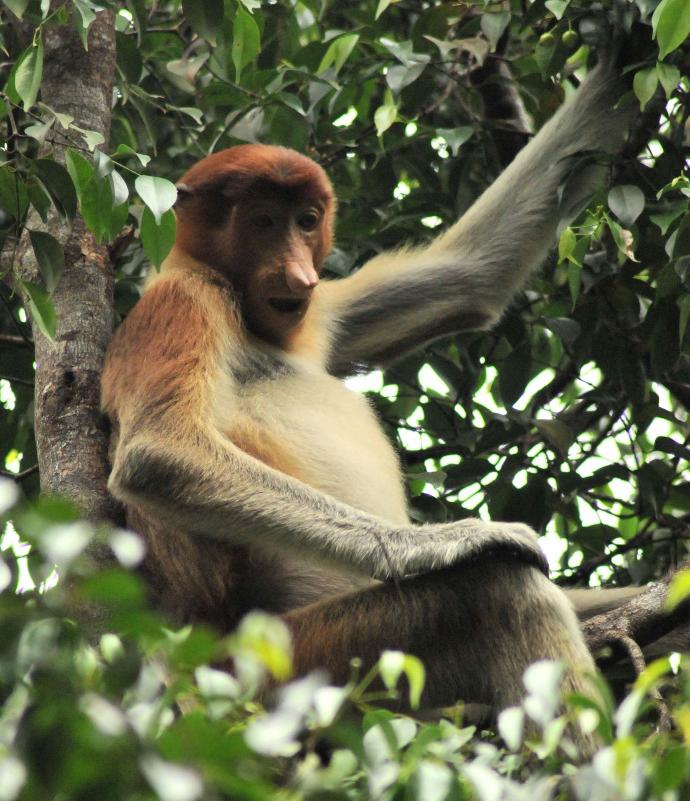
Naturalist tour in Borneo
14 days 13 nights
Third largest island in the world, Borneo is located in the South China Sea, east of the Malaysian peninsula. Comprising three countries, Indonesia, Malaysia and Brunei, Borneo is home to one of the highest biodiversity on Earth, whether on land or in its coastal waters. This trip will offer participants the opportunity to discover the still preserved tropical forests of Sarawak and Sabah (Malaysia), in the north of the island. We will visit several types of tropical forests: the mangrove and the coastal forests of Bako, those of the high plateaus of Mulu, the jungle bordering the Kinabatangan river, kingdom of the elephant-pygmies, or that of Sepilok, home of the Orangutans and flying squirrels.
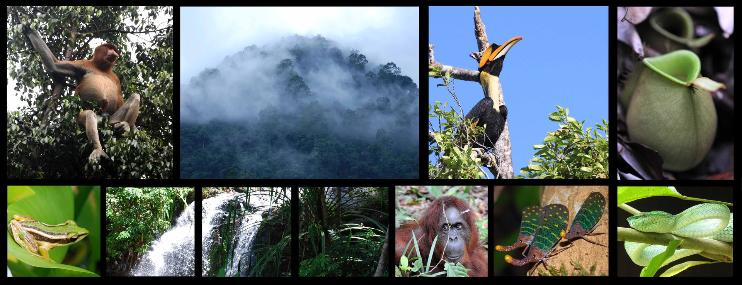
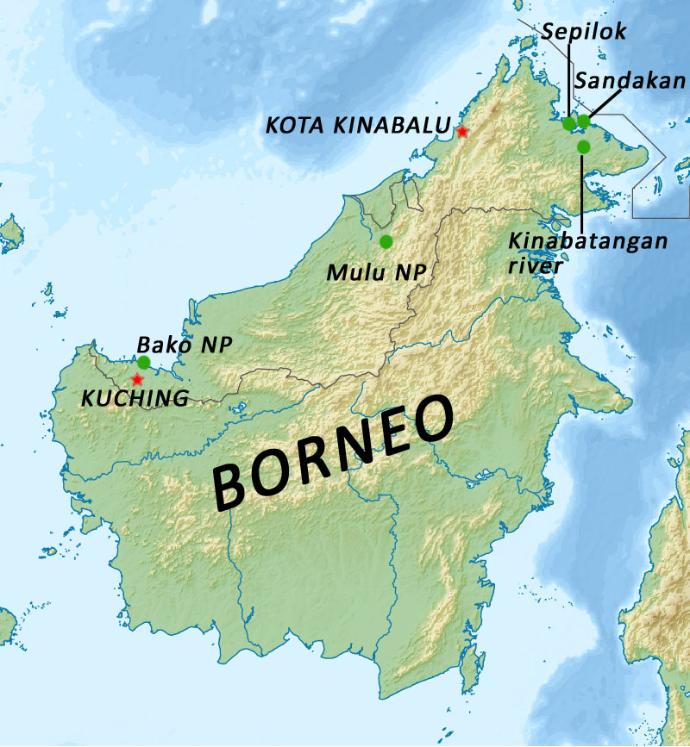
Day 1 - Kuching
(Dinner)
Reception at Kuching International Airport. Check in at the hotel and briefing on the stay. Walk in town along the river. Itinerary according to arrival times.
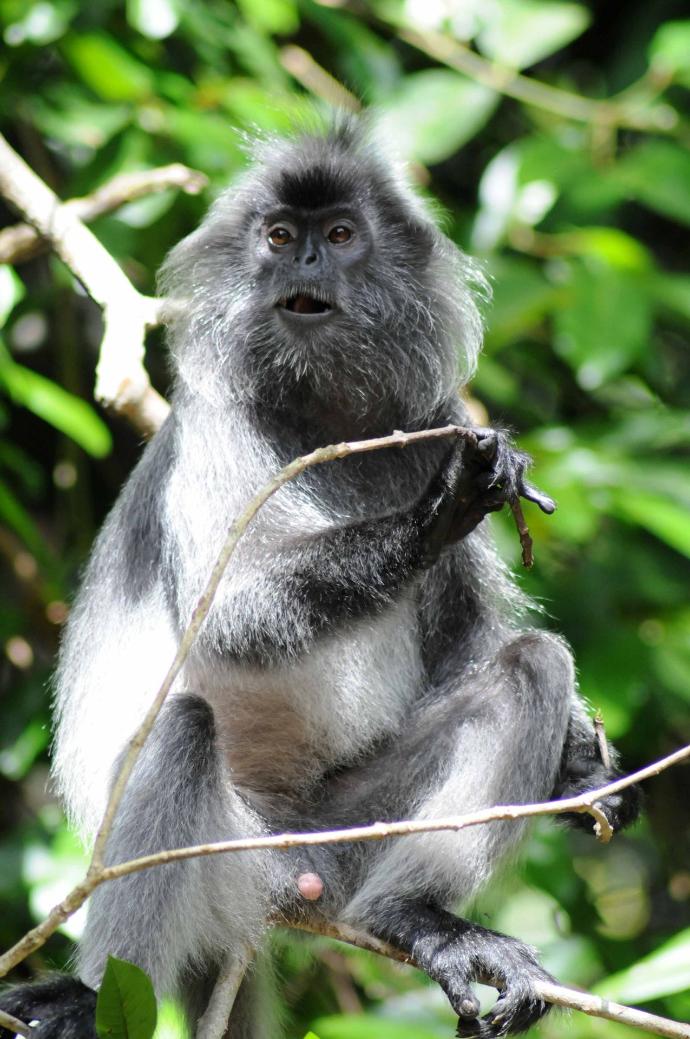
Day 2 - Bako National Park
(Breakfast, lunch, dinner)
We leave early from Kuching by minivan for Bako pier. Then we take the boat to the national park. We may be lucky enough to spot a Saltwater Crocodile before arriving at the park, where Proboscis Monkeys and Silver Langur are common on the trails, and Bearded Boars roam the beach and surrounding areas. Lunch at the restaurant in the park. Depart around 3 p.m. and return to Kuching. Evening meal in town.
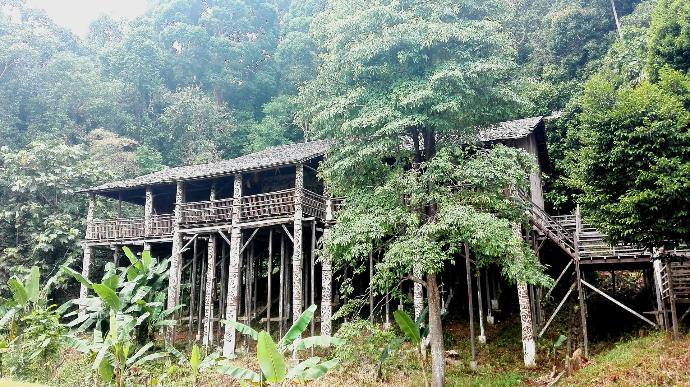
Day 3 - Semengoh and cultural village
(Breakfast, lunch, dinner)
After breakfast, we leave for the rehabilitation center of Semengoh. Created in 1975 to take care of wild animals found injured in the forest, orphaned or previously kept as illegal pets, it aims to teach them to live in their environment before releasing them into the 740-hectare forest reserve. We then have our lunch at the Sarawak cultural village before the visit which presents the different tribes of Sarawak, their activities and their respective traditional houses. We return to town for the evening meal.
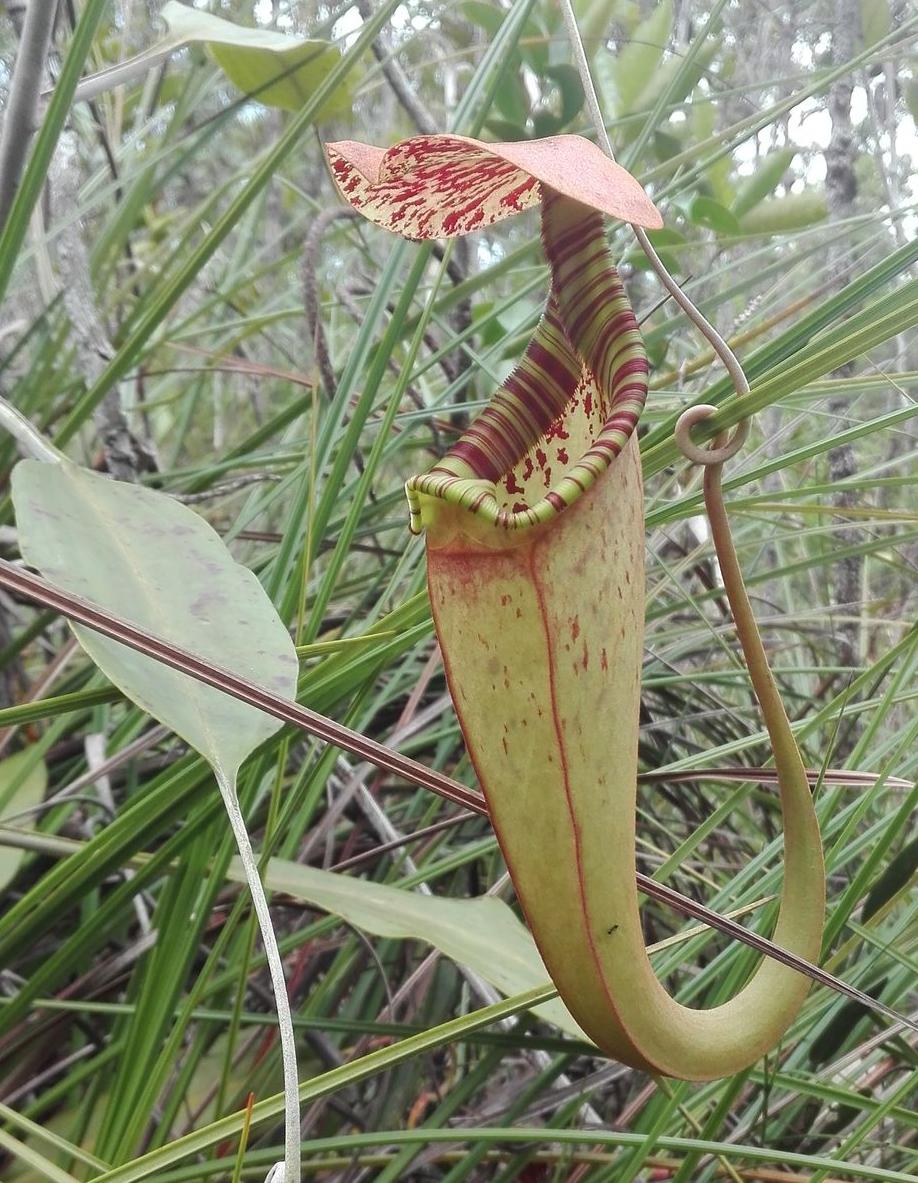
Day 4 - Kuching - Mulu
(Breakfast, lunch, dinner)
Morning transfer to the airport for our flight to Mulu. After the arrival’s formalities and our lunch, we settle in the bungalows of the park. Late afternoon, first observations along the paths of the park. After the evening meal, night out in search of stick insects.
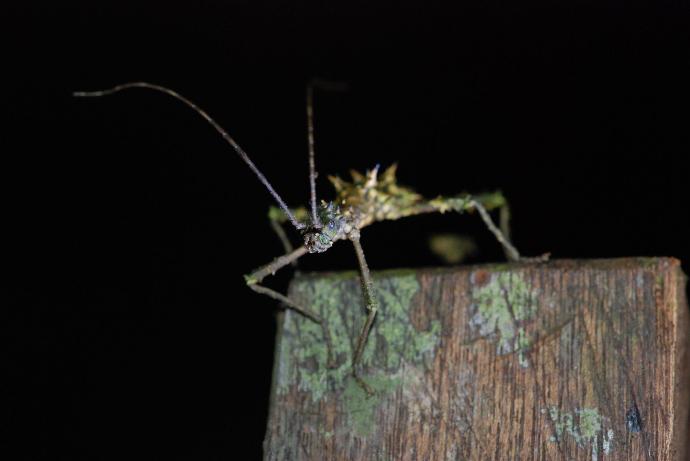
Day 5, 6 and 7 - Mulu National Park
(Breakfast, lunch, dinner)
During the next three days, we will alternate walks along the paths to observe the birds, with outings in small groups accompanied by the guides of the park, in particular to explore one of the largest caves in the world and witness the exit of two million cave bats at nightfall. Also with a guide, we will do the canopy route that will give us another perspective of the forest, and a canoe trip along the river. Meals will be taken at the park café and a break is planned in the first half of the afternoon, during the hottest hours of the day. In the evening, night walks are planned to multiply the chances of observing a crowd of insects and listening to the incredible soundscapes of the jungle, with the rustling of insects and the croaking of frogs.
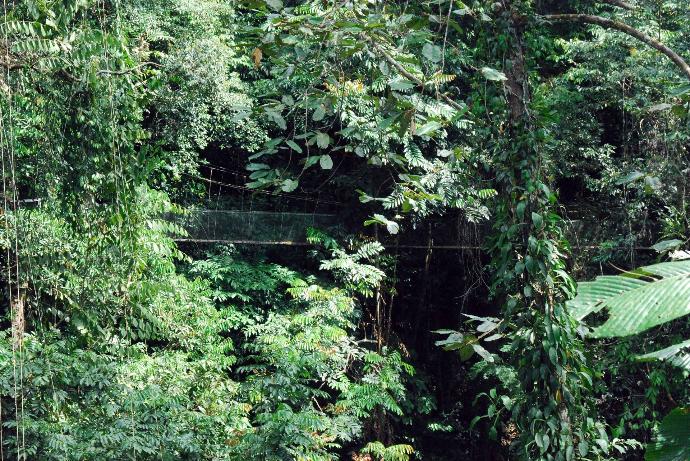
Day 8 - Mulu - Kota Kinabalu
(Breakfast, lunch, dinner)
Short excursion in the gardens before breakfast for early risers. At the end of the morning we take our flight to Kota Kinabalu, capital of the state of Sabah in the Malaysian part of Borneo. After settling in the hotel, free afternoon to visit the city. Evening meal in town.
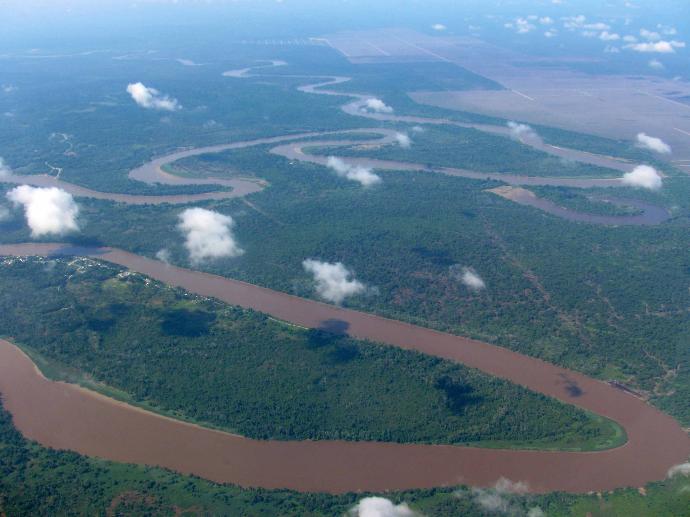
Day 9 - Kota Kinabalu - Kinabatangan river
(Breakfast, lunch, dinner)
Early departure for Kota Kinabalu airport, to take our flight to Sandakan, in the province of Sabah. We will have the opportunity to fly over a good part of this gigantic island, the third largest in the world. We will arrive mid-morning in Sandakan. From there, a short mini-bus ride will take us to the marina. Transfer to a boat that will first cross the gulf before reaching the Kinabatangan River estuary, which we will ascend for more than two hours. We will be immersed in another universe: first of all the mangrove, kingdom of the saltwater crocodile, proboscis monkeys and nursery of millions of fish. Then, the gallery forest that borders the banks of the river. In this habitat we will see our first kingfishers, egrets, Hornbills and many other birds. About fifty kilometers, and here is our lodge which appears, at the bend of a meander in the river. Installation in this exceptional place. Lunch at the lodge, then free time before a night boat trip to search for nocturnal creatures: civets, bats, Buffy Fish-Owl...
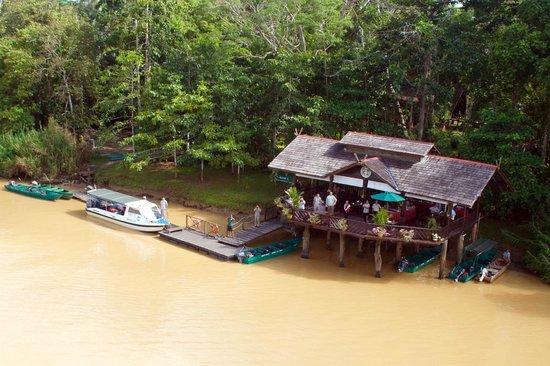
Day 10 and 11 - Kinabatangan river
(Breakfast, lunch, dinner)
During the next two days, we survey the river and its tributaries in search of fishing birds: the rare Storm stork, the discreet Yellow Bittern, the splendid Blue-eared Kingfisher or the imposing Gray-Headed Fish-Eagle. On the banks, the Malayan monitor lizard can be observed, as well as the suspicious and feared saltwater crocodile. We will scan the foliage to look for several species of monkeys: the emblematic Orangutans and Proboscis monkeys, but also long-tailed Macaques and silver Langurs. Return to the lodge for lunch. After a break in the early afternoon, another boat trip in the afternoon to visit a different sector of the river to see, with great luck, the Borneo pygmy elephant. Evening meal at the lodge.
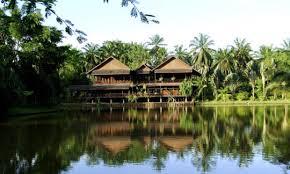
Day 12 - Sepilok
(Breakfast, lunch, dinner)
After breakfast, last observations along the pontoons around the lodge. Departure by van towards Sandakan. Arrival at our lodge in Sepilok for lunch. Located in pretty tropical gardens and around a pond, the bungalows welcome you. First observations in the gardens and on the edge of the forest just before nightfall. Evening meal at the lodge.
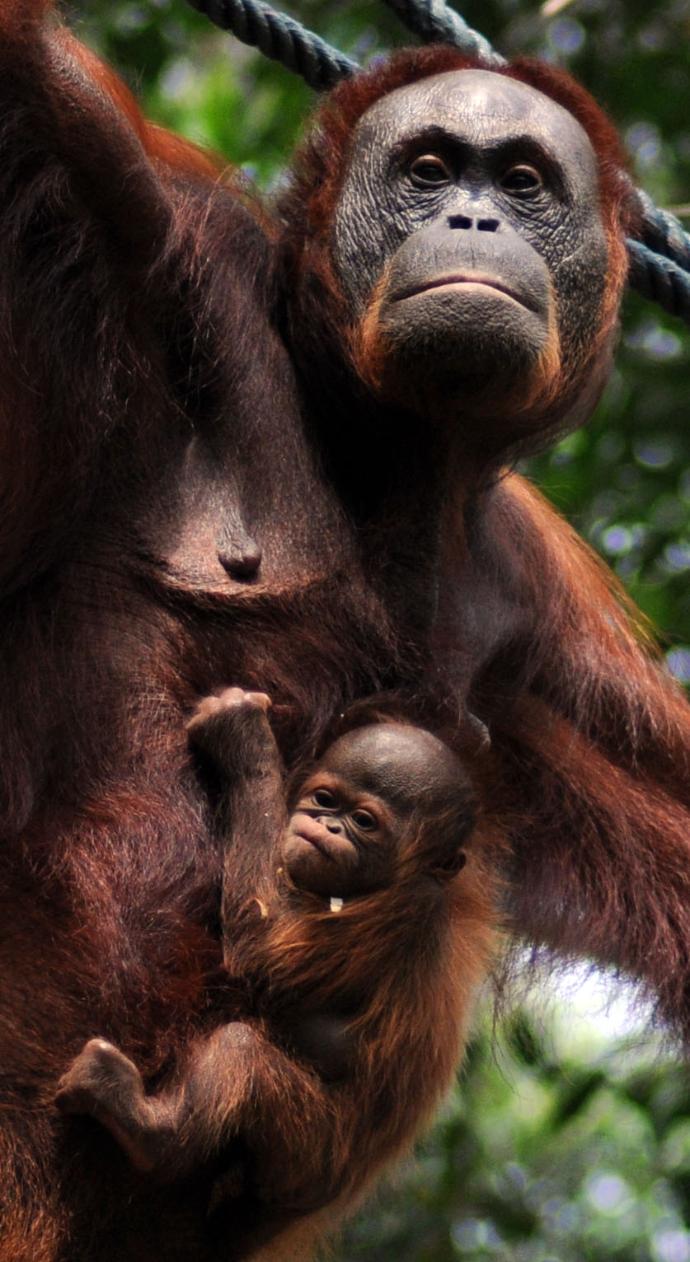
Day 13 - Sepilok
(Breakfast, lunch, dinner)
Depart after breakfast to be at the entrance of the Rainforest Discovery Center when it opens. Morning devoted mainly to the search for birds along the trails. The Wallace's Hawk-Eagle and the Crested Serpent-Eagle perch on the tall trees. In the undergrowth, we will try to spot the Trogons and the Pittas, which are often very discreet. The Broadbills and the hornbills evolve higher in the trees. Return around noon to the lodge for lunch. In the middle of the afternoon, return to the center to try to spot the flying squirrels and other crepuscular mammals at the end of the day. Evening meal at the lodge.
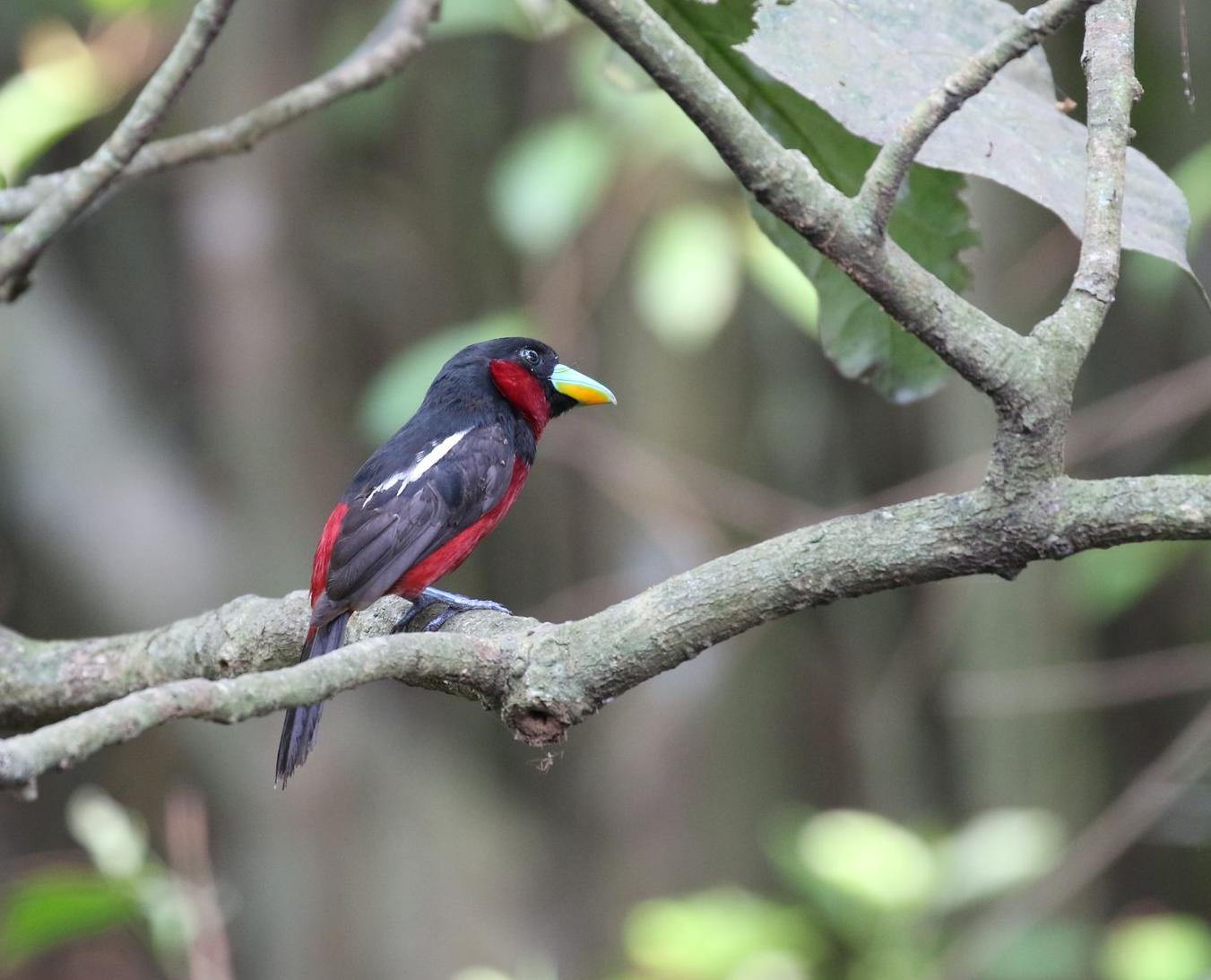
Day 14 - Sepilok
(Breakfast, lunch)
After breakfast, last observations in the morning in the gardens and on the edge of the forest. Lunch at the lodge then transfer to Sandakan airport to take our flight to Kuala Lumpur. You can also extend the pleasure with an extension on the Island of Lankayan or in the urban jungle of Singapore.
Bako National Park :
Bako contains almost all the plant varieties present on the island of Borneo, with more than 25 types of vegetation from 7 complete ecosystems: beach vegetation, cliff vegetation, "kerangas" or heather forest, mangrove, "padang" or grasslands, and swampy forest. This unusual plant life also includes various varieties of carnivorous plants.
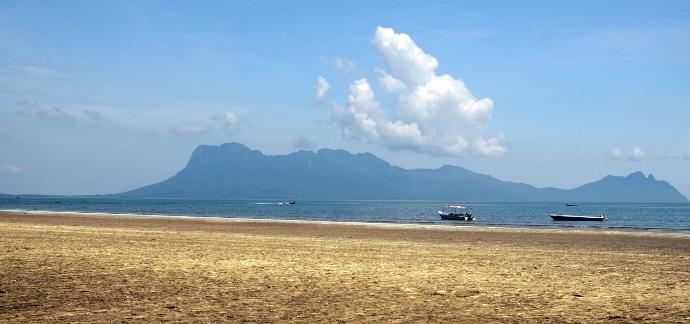
SEMENGOH :
Semengoh Rehabilitation Center was established in 1975 to care for wild animals found injured in the forest, orphaned or previously kept as illegal pets. The centrer’s orangutan population can be divided into two groups. The first group includes newcomers and the “hopeless”. The newcomers are usually young orphans, while the hopeless are the orangutans who have been kept as pets for so long there's just no way they'll be able to fend for themselves in nature. The second group includes the semi-wild orangutans that roam the 740-hectare forest reserve. These animals are halfway through the rehabilitation process and mostly manage on their own, foraging and in the forest.
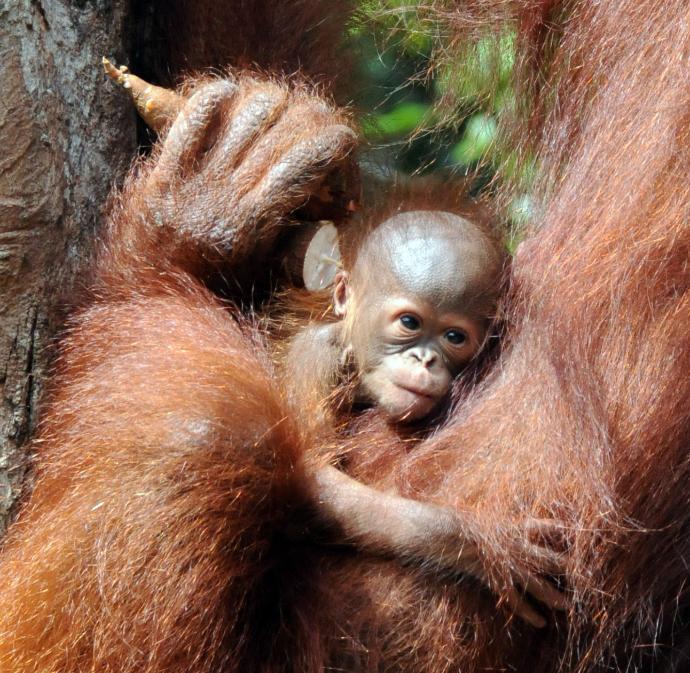
Sarawak cultural village :
The Sarawak Culture Village, located at the foot of Mount Santubong, Kuching, showcases the different ethnicities performing traditional activities in their respective traditional houses. Cultural performances are presented

Mulu National Park :
Important both for its high biodiversity and for its karst character, Gunung Mulu National Park (52,864 ha), in the state of Sarawak on the island of Borneo, is the most studied tropical karst region in the world. The park contains 17 vegetation zones with approximately 3,500 species of vascular plants. It is considered one of the richest sites in the world for palms, with 109 species of 20 genera described. The summit of Gunung Mulu, a 2,377m high karst peak, dominates the park. At least 295 km of explored caves offer an extraordinary spectacle with millions of swiftlets and bats. The Sarawak Hall, which measures 600 m by 415 m and 80 m high, is one of the largest known underground halls in the world.
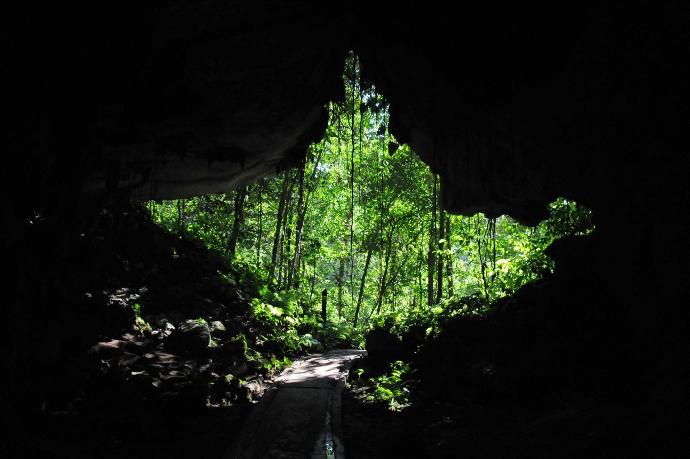
Sepilok :
An excellent birding site with lowland dipterocarp forests and mangrove forest. Famous for its Orangutan Rehabilitation Center (Ourc) and the Rainforest Discovery Center (RDC). Although the birding list overlaps significantly with that of Kinabatangan and Danum Valley, birding for a day here is still highly recommended.
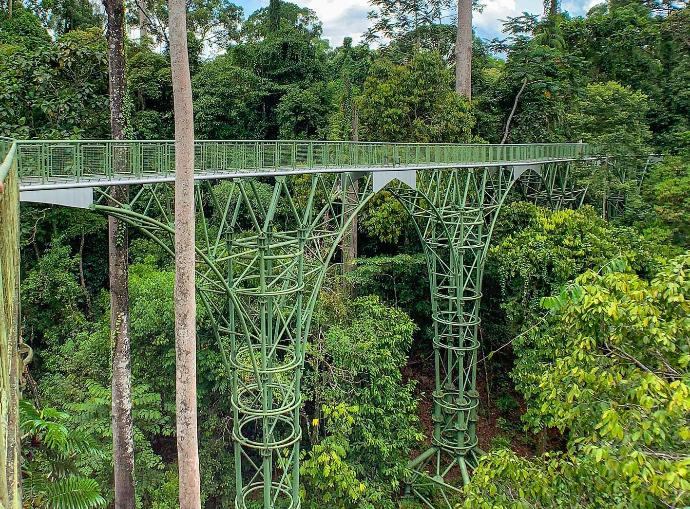
Kinabatangan river :
The second longest river in Malaysia, the Kinabatangan River is one of the most diverse ecosystems in the world, especially around its lower basin. Renowned as a wildlife sanctuary where exotic species such as Proboscis Monkeys, Orangutans and Asian Elephants can be seen. A river safari is the best way to experience the rich ecosystem and abundant wildlife of the Kinabatangan.

Dates & prices
Next departure Price
Status
From 15 to 28 Mars 2025 3580 €
3222 €
Full
From 05 to 18 March 2026 3580 € Guaranteed from 4 participants Book
Our prices include :
- The services of an English-speaking tour leader,
- Accommodation on the basis of a double or twin room in the hotels mentioned or equivalent,
- Full board meals,
- Transfers and transport on site,
- Flight Kuching – Mulu
- Flight Mulu - Kota Kinabalu
- Flight Kota Kinabalu - Sandakan
- Flight Sandakan - Kota Kinabalu or Kuala Lumpur
- Entrance fees,
- Guide fees.
Our prices do not include :
- International flights,
- The single room option if desired and subject to availability. Price upon request,
- Non-meals drinks
- Alcoholic drinks
- Tips and other personal expenses.
- In case of air transport, air surcharges in the event of excess baggage or increased fuel.
- Multi-risk travel insurance (optional)
- Expenses related to force majeure (adverse weather conditions, geopolitical issues, etc.)
Easy. The walks carried out throughout the tour do not present any difficulty. It is hot, between 30 and 34°C (86 to 94°F), and the percentage of humidity is high, between 80-95%.
We walk a few hours a day at the pace of leisurely walking with many breaks for observation. You are in good health and able to walk at a normal pace, with a small backpack containing hydration.
Accommodation throughout the trip is of a generally high standard, ranging from comfortable to quite luxurious.
We will travel by minibus with approved drivers. Road conditions in Borneo are good.
Information concerning health and administrative formalities may constantly evolve. It is necessary to check for updates with official bodies.
Visa :
Most foreign nationals do not need a visa for a stay of less than three months in Peninsular Malaysia and Borneo. They must imperatively be in possession of a passport with a validity of at least six months after the date of end of stay and a return or onward ticket.
Health
No vaccination is required unless you are arriving directly from Africa or South America, where in this case you will need to present a yellow fever vaccination certificate.
You will find the list of countries requiring a yellow fever vaccination certificate and/or a visa on the official website of the Immigration department of Malaysia
Feel free to contact us for any clarification or special request.
- Registration: your request is made through the registration form. We prepare a quote with all the information related to your trip that you will receive by e-mail within 2 to 5 days of your request.
- Confirmation : Your registration will be final and taken into account by the validation of the quote, our general conditions of sale and the payment of a deposit of 40%. The balance payment must reach us no later than 45 days before the departure date.